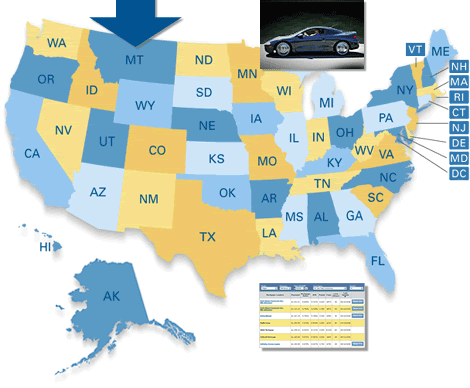Automotive Loans: Car Buying Incentives
by Amy Lillard
(1/21/2013) Everyone with something to sell offers sales, coupons, or other methods of enticement for consumers. Car makers and dealers offer rebates and incentives.
Understanding what rebates and incentives are available can give car buyers special power during the purchasing and negotiation process, and ultimately reduce the amount of money spent initially and over the life of a loan.
• New car rebates. These are highly popular incentives offered by car manufacturers, advertised as “cash back” or “bonus cash” offers. The amounts offered can range in the hundreds or thousands. Typically this type of rebate is actually applied to the cost of the new car, reducing the total amount paid and/or financed. In some cases, there may be specific qualifications or conditions for receiving these rebates. When using a rebate, experts recommend negotiating for a new car as if the rebate didn’t exist in order to actually feel their benefit.
• Used car rebates. These type of rebates are offered by dealers instead of manufacturers, and may be less common than new car rebates. Plus, used car rebates will vary by individual car due to their differing value, rather than an entire model or make of car. Overall these rebates are usually smaller in value, but can add up to big savings.
• Government rebates. In addition to dealer and manufacturer rebates, the government offers rebates for certain cars, including hybrids and alternative fuel cars. These types of rebates are designed to reduce oil consumption and air pollution, and are applied for after purchase.
• Low-interest financing. In addition to rebates, car manufacturers and dealers partner with lenders to offer special incentives including low- or no-interest financing. This arrangement significantly cuts down on the money borrowers pay each month and over the life of a loan. Usually, buyers need excellent credit in order to qualify for these offers, and consumers are offered this option OR a rebate.
• Special leases. When leasing a vehicle, one common deal from manufacturers is a reduced lease. Carmakers and dealers base the lease on a residual value that’s higher than the actual worth of the car at the end of the lease, which translates to either a reduced monthly lease or money due at signing. Know that these often extend the time of the lease, or alter other key details of the lease like miles allowed per year.
Edmunds.com features an incentives and rebates page where you can research all current incentives by car brand and model, which can arm you for a more effective negotiation and purchase.
For Additional Reading:
Incentives: Rebates and Financing Offers: http://www.cars.com/go/advice/incentives/index.jsp
The 7 Types of Car Incentives:
http://www.realcartips.com/newcars/031-types-car-incentives.shtml
 A frequent contributor to ERATE® since 2006, Amy Lillard is a freelance writer specializing in turning complex information into useful tips and tricks for readers. For questions or topic suggestions, contact Amy at [email protected].
A frequent contributor to ERATE® since 2006, Amy Lillard is a freelance writer specializing in turning complex information into useful tips and tricks for readers. For questions or topic suggestions, contact Amy at [email protected].
Other related articles:
Automotive Loans: Should You Buy New or Used?
Automotive Loans: Negotiating a Loan with a Dealer
Automotive Loans: How Much Car Can You Afford?
Automotive Loans: Buying Vs Leasing
Automotive Loans: Applying for a Car Loan
Avoid advertised auto trade-in, loan pay-off rip-offs
Auto sales, loans hit the speedway
High MPGs and low auto loan rates can save you thousands of dollars
Research your options when shopping for an auto loan
How to drive a hardauto loan bargain
Special Report: Hitting the Brakes on Auto Dealer Loans
Buying vs. Leasing: A Comparison
Closed End Lease or Open End Lease
New and Used Auto Loan Rates
Choose Your State Below

Start by selecting your state
Refinancing: Selecting a Loan

- Mortgage Program Options
- Interest Only Mortgage
- 100% Mortgage Financing - No Down Payment
- Mortgage Rates Comparison
- Search for Mortgage Rates
- No Costs Mortgage Refinancing
- 2% Rule - Refinancing Mortgage
- Yield Spread Premium
- Prepayment Penalty - Mortgage Refinancing
- What is APR and how is it calculated?
- Private Mortgage Insurance - Refinancing
Moving Ahead With Your Refinance
Get the Updated and Improved Mortgage Rates App from ERATE.com
FREE Mortgage Rate WidgetsYour State's Rates or National Rates Get this Widget for any State you want


